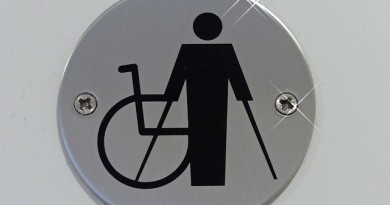How Much Does Earthquake Insurance Cost?
Earthquake insurance is a form of insurance that covers property owners for damage caused by earthquakes. Most regular property insurance policies do not cover earthquake damage. In parts of the world that are prone to earthquakes, insurance companies are often required by law to provide earthquake insurance. Earthquake property damage coverage tends to include a high deductible, making it useful only in situations where the home is a total loss.
The cost of earthquake insurance varies according to numerous factors. The most obvious of these factors is the location of the property and the probability of earthquake damage. The type of building construction is also a relevant factor to determine earthquake insurance cost. Homes made of wood, for example, are more flexible and are better able to survive a tremor than a home made out of brick or concrete. Insurance coverage for earthquake damage is also available to renters, as they could possibly lose all of their possessions in such a disaster.
Earthquake Insurance Rates
As with all forms of insurance, earthquake insurance rates vary regionally as they are governed by state law, not federal law. Efforts as recently as 2006 to pass a National Insurance Act have failed. Earthquake insurance premiums are generally in multiples of $1000 in replacement value. In the Pacific Northwest, for example, a brick home is usually insured at a rate of $3 to $5 per $1000 of replacement value. On the East Coast, however, rates are considerably less, running at a rate of about 75 cents per $1000 in replacement value.
Stand-Alone Earthquake Insurance
Stand-alone policies are a substantial part of any discussion relating the cost of earthquake insurance, as they are often a less expensive alternative for some homeowners. In some states, not all insurance companies are required to offer earthquake insurance. So, this coverage must often be purchased as a separate policy. The decision to purchase stand-alone insurance is based on whether the separate policy is less costly than adding coverage to the home owner’s existing policy. In many cases, this answer is yes.
Earthquake Insurance Coverage
Because a regular home insurance policy will not cover earthquake damage, earthquake insurance is vital. Many people would believe that only states like California, Alaska, and Nevada would need such coverage, but the tremors in Virginia in late 2011 have shown that everyone who owns a home should have this coverage. The policy should cover any needed repairs to the home, and ensuring that repairs are completed according to the current building regulations. Personal property losses should be covered, as well as living expenses since the repairs are done to the home. Deductibles can range anywhere from a low of 2% to a high of 20%, with rates in the range of 10% being common in earthquake prone areas of the United States.
Should I Get Earthquake Insurance?
The answer to this question is a resounding “Yes!” No place is completely safe from damage due to earth movement. In 2011, property along the east coast around Virginia was damaged by an earthquake. Earthquake insurance cost for homes in regions that are not at great risk for damage is extremely affordable. Homeowners are not the only ones who need coverage. Renters as well should seriously consider purchasing this insurance, as they will not be covered under the landlord’s existing policy. Renters as a general rule tend to neglect to buy insurance, yet they are can least afford to lose all that they have in a natural disaster.
When purchasing coverage, be sure to purchase enough. You will need enough money to rebuild or repair your home. You will also need to replace your belongings that might be lost or destroyed. It might be smart here to determine what you need to replace the most to cut down on earthquake insurance cost. You also will need to have coverage for living expenses, although everyday expenses like groceries and car payments are not going to be covered.
California Earthquake Insurance Rates
California earthquake insurance rates vary considerably. According to the California Earthquake Authority, the average annual premium is $707. Earthquake insurance cost is determined not just based on location, but on the age of the building, how it was constructed, and the stability of the soil in the area. In a recent list of the top ten most expensive states to insure your home by Forbes magazine, California did not make the list. This is because earthquake policies in California are separately sold from homeowner’s policies. Texas and Florida were the states at the top of the list. Both of those states are threatened by severe hurricane damage every year.
CEA Earthquake Insurance
After the 1994 Northridge earthquake, which killed 57 people and caused over $25 billion in damage, most insurance companies stopped selling home owners insurance in the state of California. This was because of the California law at the time that required insurance companies selling home owners insurance to offer earthquake insurance, as well. In response to this crisis, the state enacted a law allowing for separate earthquake policies and creating the California Earthquake Authority. The CEA is a privately funded and publicly managed organization that sells earthquake insurance through insurance companies.
CEA coverage is available only through the homeowner’s own home insurance policy company, and only if that the company is a participating CEA company. There is a list of nineteen participating companies on the CEA website. The site also has a premium calculator that asks consumers to enter information about their home and allows them to selectcertain deductibles and coverage limits. The calculator will then determine an estimated premium which the consumer can then take to any of the participating insurance companies. These premiums are put into a pool in the CEA to cover earthquake damage claims.
In California, companies are required to offer insurance even if your home does not meet current building code regulations. Additional deductible and higher premiums, however, will be applied in these situations. Because of these, many home owners in the state have decided to retrofit their homes. Retrofitting is the process of strengthening a current structure according to modern building codes in order to avoid damage. The insurance company is required to disclose any discounts (concerning earthquake insurance cost) available to the policy holder for retrofitting their home.
- 781SHARES






